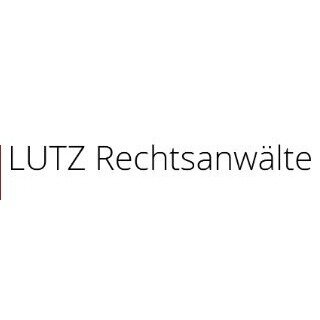Best Public-Private Partnerships (PPP) Lawyers in Stuttgart
Share your needs with us, get contacted by law firms.
Free. Takes 2 min.
List of the best lawyers in Stuttgart, Germany
About Public-Private Partnerships (PPP) Law in Stuttgart, Germany
Public-Private Partnerships, commonly referred to as PPPs, are collaborative agreements between government authorities and private sector entities. In Stuttgart, Germany, PPPs are increasingly used to plan, fund, build, and operate public infrastructure projects, such as schools, transport networks, hospitals, and energy facilities. These partnerships allow public projects to benefit from private sector innovation, financing, and management expertise while continuing to serve the public interest. PPP law in Stuttgart is shaped by both German national legislation and specific local policies, ensuring that agreements are transparent, legally compliant, and beneficial to all stakeholders.
Why You May Need a Lawyer
Entering into a PPP arrangement can be complex because it involves multi-party negotiations, legally binding contracts, and strict regulatory requirements. You may need a lawyer if:
- You are a private company seeking to collaborate with public authorities on infrastructure or service provision projects.
- You are a public sector entity that needs support in structuring, negotiating, or managing a PPP project.
- You need legal advice on risk allocation, liability, or contract performance regarding a PPP.
- You face disputes or disagreements related to a PPP contract or project outcomes.
- You are concerned about compliance with procurement rules or competition law.
- You want to ensure your interests are protected in long-term contractual relationships.
- You need help navigating the complex approval and monitoring processes involved in PPPs in Stuttgart.
Legal support is essential to manage risk, avoid disputes, and ensure that your PPP project is set up for sustainable success.
Local Laws Overview
PPPs in Stuttgart are primarily governed by German federal laws, local regulations, and EU directives. The most relevant legislation includes:
- The Gesetz gegen Wettbewerbsbeschränkungen (GWB) - German Competition Law, which governs public procurement procedures to ensure open and fair tendering.
- The Vergabeverordnung (VgV) - Public Procurement Regulation, which lays out specific procedures for awarding contracts.
- The Budgetary Law of Baden-Württemberg, which impacts how Stuttgart structures and finances public projects.
- The Bürgerliches Gesetzbuch (BGB) - German Civil Code, which addresses contract law principles that apply to PPP agreements.
- EU public procurement and competition directives, which set minimum standards for project bidding and anti-monopolistic practices.
Local authorities in Stuttgart may also issue additional guidelines to support the transparent selection of private partners, fiscal management, and project oversight. Expert legal advice ensures compliance with these multi-layered regulations.
Frequently Asked Questions
What types of projects are common for PPPs in Stuttgart?
Typical PPP projects include the construction and management of schools, hospitals, transport infrastructure such as roads and bridges, renewable energy facilities, and waste management services.
Who can initiate a PPP project in Stuttgart?
Both public authorities and private companies can initiate a PPP. Generally, public authorities identify a need, and private partners submit proposals to fulfill those requirements through a partnership structure.
What are the main benefits of PPPs?
PPPs can accelerate project delivery, provide innovative solutions, spread the financial risk, and leverage private sector expertise in areas such as maintenance, technology, and long-term project management.
Are there risks involved in PPP contracts?
Yes. Risks include changes in political or economic circumstances, inadequate risk allocation, poor project performance, or financial instability of partners. Legal advice is essential for risk assessment and mitigation.
How are PPP projects awarded in Stuttgart?
PPP projects are subject to public procurement laws to ensure transparency and competition. Contracts are typically awarded through tendering procedures overseen by local authorities, adhering to both German and EU standards.
What legal documents are involved in PPP arrangements?
Core documents include the PPP agreement (which outlines roles, responsibilities, risk-sharing, and financial arrangements), project schedules, performance standards, and compliance assurances.
Can existing contracts be modified?
Modifying PPP contracts is possible but can be legally complex. Amendments must comply with procurement rules and usually require renegotiation and formal approval from relevant authorities.
What happens if there is a dispute?
Disputes may be resolved through negotiation, mediation, or commercial litigation. Often, PPP contracts specify dispute resolution mechanisms such as arbitration to avoid lengthy court proceedings.
Are there regulatory approval processes unique to Stuttgart?
Local approval processes may include assessments by Stuttgart’s city council, state regulatory bodies, and budget committees in Baden-Württemberg. Each project must also align with urban planning and environmental regulations.
How can a lawyer help with PPP financing?
A lawyer can advise on funding structures, conduct due diligence, review financing agreements, and ensure compliance with all public and private sector requirements to secure sustainable and lawful project funding.
Additional Resources
For individuals seeking more information or assistance related to Public-Private Partnerships in Stuttgart, the following resources may be helpful:
- The City of Stuttgart’s Department of Urban Development and Mobility
- Ministry of Transport Baden-Württemberg
- PPP-Taskforce Germany (ÖPP-Deutschland AG)
- German Institute for Urban Affairs (Deutsches Institut für Urbanistik)
- Chamber of Industry and Commerce Stuttgart
- European PPP Expertise Centre (EPEC)
- Bundesministerium für Wirtschaft und Klimaschutz (Federal Ministry for Economic Affairs and Climate Action)
These organizations provide valuable information on regulations, best practices, and advisory services for PPP projects.
Next Steps
If you are considering involvement in a Public-Private Partnership in Stuttgart, Germany, or if you are facing any legal issues related to a PPP, taking the following steps is advised:
- Gather all relevant information and documents about your project or legal issue.
- Consult with a lawyer who specializes in PPP law and is familiar with Stuttgart’s local legal environment.
- Clarify your objectives, concerns, and expectations before the legal consultation.
- Ask your lawyer about compliance, risk allocation, contract structure, and dispute resolution mechanisms specific to your case.
- Follow your lawyer’s advice regarding negotiations, contract drafting, regulatory filings, and ongoing project management.
Taking these steps can help you navigate the complexities of PPP projects in Stuttgart with greater confidence and legal security.
Lawzana helps you find the best lawyers and law firms in Stuttgart through a curated and pre-screened list of qualified legal professionals. Our platform offers rankings and detailed profiles of attorneys and law firms, allowing you to compare based on practice areas, including Public-Private Partnerships (PPP), experience, and client feedback.
Each profile includes a description of the firm's areas of practice, client reviews, team members and partners, year of establishment, spoken languages, office locations, contact information, social media presence, and any published articles or resources. Most firms on our platform speak English and are experienced in both local and international legal matters.
Get a quote from top-rated law firms in Stuttgart, Germany — quickly, securely, and without unnecessary hassle.
Disclaimer:
The information provided on this page is for general informational purposes only and does not constitute legal advice. While we strive to ensure the accuracy and relevance of the content, legal information may change over time, and interpretations of the law can vary. You should always consult with a qualified legal professional for advice specific to your situation.
We disclaim all liability for actions taken or not taken based on the content of this page. If you believe any information is incorrect or outdated, please contact us, and we will review and update it where appropriate.











